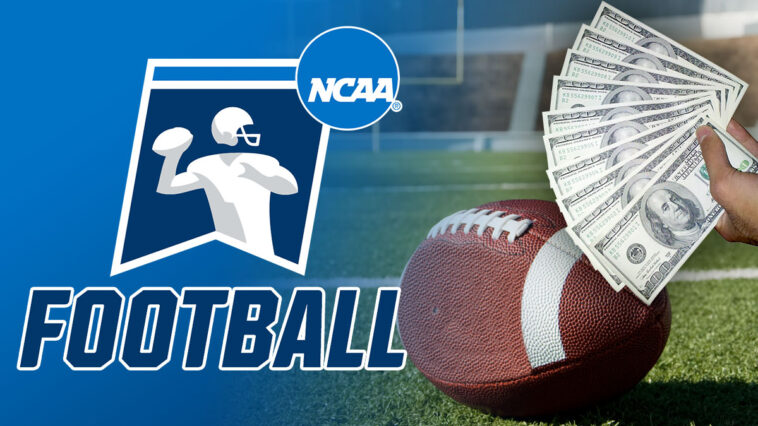College football betting is a popular activity among sports enthusiasts who want to enhance their game-watching experience and potentially earn some extra cash. However, successful betting requires a good understanding of the key factors that influence the outcomes of college football games. In this article, we will explore the essential factors you need to consider when engaging in college football betting. From analyzing team statistics to evaluating trends and strategies, we will provide you with valuable insights to improve your chances of making informed betting decisions.
College football betting involves predicting the outcomes of games and placing wagers based on those predictions. To make accurate predictions, it is crucial to consider various factors that can significantly impact the results. These factors range from team performance and player availability to external influences such as weather conditions. By thoroughly analyzing these key factors, you can increase your chances of making profitable bets.
Importance of Team Statistics
Team statistics play a vital role in college football betting, especially when considering NCAAF odds. They provide valuable insights into a team’s offensive and defensive capabilities, allowing you to assess their overall performance. Key statistics to consider include points per game, yards gained per game, turnover differentials, and third-down conversion rates. By analyzing these metrics, you can identify teams with potent offenses, strong defenses, or a good balance of both.
Analyzing Historical Performance

Evaluating a team’s historical performance can provide valuable information about their consistency and ability to perform under different circumstances. Pay attention to their performance against specific opponents, both in recent games and over a more extended period. Some teams may consistently excel against weaker opponents but struggle against stronger competition. By analyzing historical data, you can identify trends and patterns that can help you make more accurate predictions.
Evaluating Player Injuries and Suspensions
Injuries and suspensions can have a significant impact on a team’s performance. The absence of key players, especially star players, can weaken a team’s offense or defense, affecting their overall effectiveness on the field. Stay informed about the injury status of key players and consider how their absence might influence the outcome of a game. Additionally, be aware of any suspensions due to disciplinary actions, as they can also impact a team’s performance.
Understanding Home Field Advantage
Home field advantage is a well-known phenomenon in sports, and college football is no exception. Many teams perform better when playing on their home turf due to factors such as crowd support, familiarity with the stadium, and reduced travel fatigue. When betting on college football games, take into account whether a team is playing at home or away. Home field advantage can be a crucial factor that can sway the outcome of a game.
Considering Weather Conditions
Weather conditions can significantly impact the gameplay and outcome of college football games. Inclement weather, such as heavy rain, strong winds, or extreme temperatures, can affect passing accuracy, kicking distances, and overall field conditions. Take into account the weather forecast when making your betting decisions. Some teams may be better equipped to handle adverse weather conditions, while others may struggle.
Examining Betting Trends
Analyzing betting trends can provide valuable insights into how the betting public perceives a particular game. Monitoring line movements and betting percentages can help you gauge the sentiment and expectations of the betting community. However, keep in mind that betting trends should not be the sole basis for your decisions. While it is essential to be aware of public sentiment, you should conduct your analysis and make independent judgments.
Identifying Coaching Strategies

Coaching strategies play a vital role in a team’s success. Different coaches employ various tactics, such as offensive schemes, defensive formations, and play-calling tendencies. Familiarize yourself with the coaching staff and their preferred strategies. Some coaches may emphasize a high-scoring offense, while others prioritize a strong defense. Understanding the coaching philosophy can give you insights into how a team is likely to perform in different game situations.
Assessing Line Movements and Odds
Line movements and odds can provide valuable information about how the betting market perceives a game. Significant line movements may indicate a shift in public sentiment or the influence of sharp bettors. Compare odds from different sportsbooks to ensure you are getting the best value for your bets. However, remember that line movements alone should not dictate your decisions. Combine them with other factors to make informed judgments.
Bankroll Management
Bankroll management is essential for long-term success in college football betting. Set a budget for your betting activities and stick to it. Avoid chasing losses or wagering more than you can afford to lose. By managing your bankroll responsibly, you can minimize the risk of significant financial losses and ensure a sustainable betting strategy.
Identifying Value Bets and Overlooking Biases
Identifying value bets and overlooking biases are essential skills for successful sports betting, including college football. Value bets refer to opportunities where the odds offered by bookmakers are higher than the actual probability of an outcome occurring. By identifying value bets, bettors can find opportunities where the potential for profit outweighs the perceived risk.
To identify value bets, it is crucial to conduct thorough research and analysis. This includes studying team statistics, player performances, historical data, and other relevant factors that may impact the game’s outcome. By comparing this information to the odds offered by bookmakers, one can identify instances where the odds seem mispriced or undervalued.
Overlooking biases is equally important. Bettors should avoid making decisions based on personal preferences, emotions, or preconceived notions about teams or players. Biases can cloud judgment and lead to irrational betting decisions. It is crucial to approach each game objectively, focusing on the available data and analysis rather than personal biases.
By effectively identifying value bets and avoiding biases, bettors can improve their chances of long-term profitability in college football betting. It requires discipline, research, and a rational approach to decision-making.

Conclusion
When engaging in college football betting, considering key factors such as team statistics, historical performance, player availability, home field advantage, weather conditions, betting trends, coaching strategies, line movements, and bankroll management is crucial. By taking a comprehensive approach and analyzing these factors, you can enhance your ability to make well-informed betting decisions and increase your chances of success.




